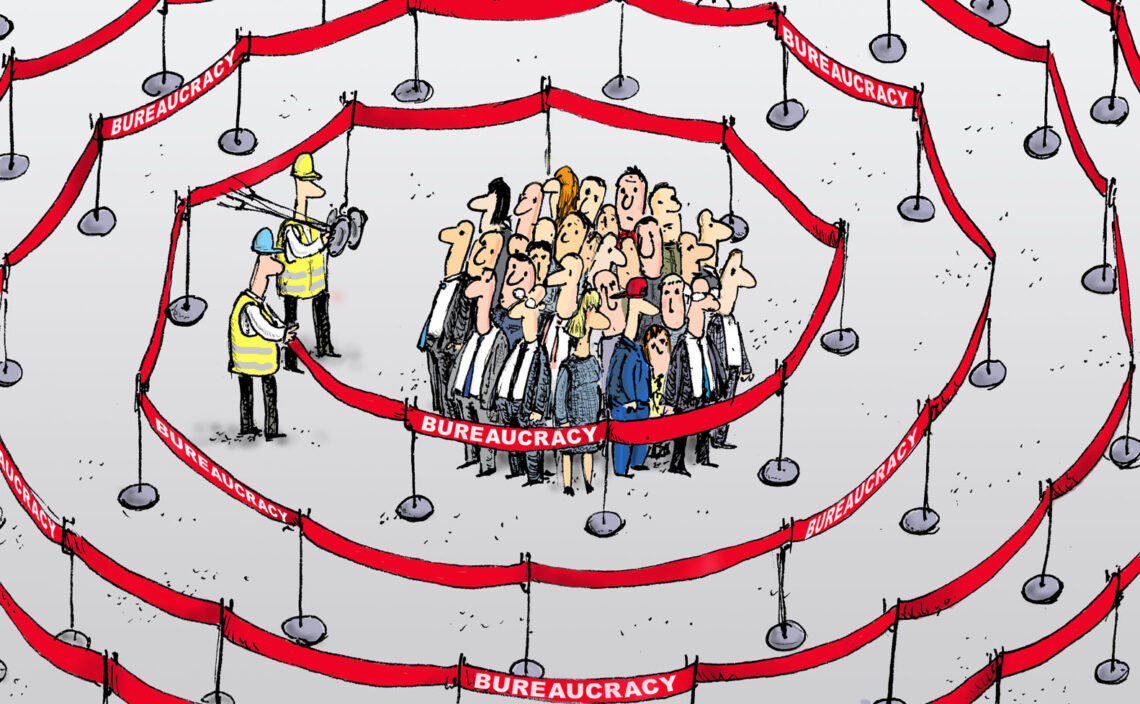Fighting Covid and the loss of local improvisation
National governments and supranational organizations like the WHO continue to push for more power to head off the next big health crises. But they cannot provide safety from unpredictable catastrophes like Covid-19. The real solutions will come from local bodies.

As the World Health Organization (WHO) holds its annual assembly this week, it will be making the case that it needs a bigger role and more power to fight future health crises. More than anything, the organization wants more money.
Like natural disasters, epidemics tend to surprise. They are by their nature unpredictable. Safety from them is an illusion.
As the Covid-19 pandemic was raging, the WHO wanted to take the lead in fighting the disease. But that was not its role, nor was it equipped to take it on. Instead, the organization’s job is to offer support in terms of sharing knowledge and experience – not setting policy.
In the initial phase, when it could have done the most, the Chinese made it difficult for the organization to conduct on-site investigations. Yet even though Beijing put up these hurdles, the organization praised China’s success in containing the disease – probably for reasons of political expediency – and ignored the oppressive measures it took to do so. The WHO’s pro-China bias was further proven when it denied Taiwan’s request to attend this week’s assembly as an observer. Politics, it turns out, is more important than fighting the pandemic.
Bureaucratic and disproportionate
In response to the pandemic, countries generally panicked and implemented disproportionate responses. Red tape made it difficult to find quick-working solutions. Politicians curbed civil liberties, and many governments passed emergency laws that gave the executive tremendous leeway in limiting basic freedoms. The dent all this made on the pandemic was small.
Large amounts of bureaucracy and regulations impede creativity and obstruct quick decision-making. They also diminish personal responsibility. Though the pandemic is global, situations vary between countries, regions and cities. Along with overarching policies, the situation calls for local solutions. Centralization necessarily increased red tape, slowing down the process of fighting the disease.
Bureaucracy impedes creativity and obstruct quick decision-making.
Another problem is that years of prosperity and an oversized welfare system have dulled the notion of self-responsibility. In Europe, where socialism has grown stronger, people have allowed the state to assume more and more functions, exchanging freedom for an illusion of security. Yet in moments of danger, personal responsibility is crucial.
People expected politicians to provide solutions. The politicians, in turn, meekly outsourced this responsibility to select scientific groups. An open scientific debate was curbed in favor of one dominant opinion.
It seems that through these years of prosperity, societies – especially wealthy ones – lost the ability to respond to threats. Scottish historian Niall Ferguson made the important observation that three small, highly developed countries that face intense peril managed the situation much better than others: Israel, Taiwan and South Korea. All three must constantly be alert. Israel must confront terrorism and threats from hostile nations such as Iran. Taiwan is menaced by China. South Korea borders an unpredictable, brutal and aggressive regime in North Korea.
Keep it local
In Europe, countries with more decentralized structures and health systems, such as Switzerland, Germany and Austria, had fewer problems, especially in the first wave. Countries like France, Italy and Spain, with centralized, strongly government-influenced health systems, did worse.
Most countries, especially Germany, wanted a European-wide solution when it came to vaccination. They ignored that procurement was never Brussels’ role. The plan went ahead anyway, and the result of this move toward centralization is well known by now: chaos and disaster. Yet, it would be wrong to put most of the blame on the European Union. It can only be criticized for not refusing to take on this responsibility. The lion’s share of the blame lies with the national governments, especially the big countries, which pushed Brussels into this position.
The pandemic is striking proof that while international organizations can provide information and advice, fighting crises should be left to local administrations. What is most important, however, is that people accept that catastrophes can happen unexpectedly at any time, and work to ensure that local emergency plans are flexible enough to adapt to whatever may come.
